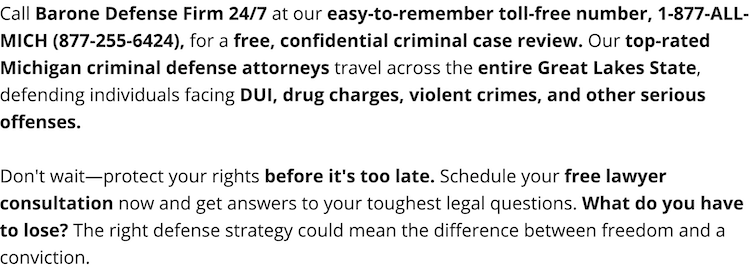Federal Fraud
Federal fraud is theft by deception, misrepresentation, or concealment. Under the federal criminal law, fraud is not a crime in and of itself, but a central aspect of a variety of statutes. There are a multitude of criminal fraud-related statutes throughout the United States Code, but the term fraud is not specifically defined.
If you have been charged with a federal fraud offense, contact a qualified federal criminal attorney about how to prepare for trial. Michigan federal fraud lawyers can work towards achieving a positive outcome in your case.
Common Fraud Offenses
The vast majority of offenses a Michigan federal fraud lawyer sees fall into one of the following categories:
- Securities and financial fraud (governed by multiple statutes)
- Identity fraud
- Wire fraud
- Credit card fraud
- Bank fraud
- Computer fraud
- Health care fraud
- Bankruptcy fraud
- Mail fraud
- Tax fraud (governed by multiple statutes)
- Money laundering
- Foreign Corrupt Practices Act
Understanding Related Federal Statutes
Federal fraud statutes encompass a broad spectrum of fraudulent activity. However, the conduct criminalized can vary significantly depending on the statute at issue. For example, the mail and wire fraud statutes are generically worded, which make them much broader in their application than the bankruptcy or health care fraud statutes.
Because the wire and mail fraud statutes apply to virtually any mail or electronic transaction, it gives prosecutors a valuable tool to pursue a wide-range of fraudulent activity. Fraud and other types of white-collar federal crimes are prosecuted within the Fraud Section of the Department of Justice.
The Department of Justice has dedicated more than 150 prosecutors and 150 support staff to investigating and prosecuting fraud offenses throughout the country. In 2016, the federal government prosecuted 6,517 fraud cases, which 9.6 percent of the Department of Justice's entire caseload. For more information on legal statutes that can impact one's case, those facing charges should contact a Michigan federal fraud lawyer as soon as possible.
Federal Sentencing Guidelines for Fraud Crimes
The Federal Sentencing Guidelines set out a uniform sentencing policy for individuals convicted of federal crimes. The guidelines are non-binding and establish a range of sentences, which take into account the seriousness of the offense and the criminal history of the accused.
The sentencing guidelines for fraud offenses are contained in Section 2B1.1. This section encompasses theft, embezzlement, receipt of stolen property, property destruction, and offenses involving fraud or deceit. The factors that determine where a case falls within the guidelines range is the offense level, the amount of loss by the victim(s), and the specific circumstances of the crime. The average sentence imposed in fraud cases in 2016 was 25 months.
Section 2B1.1 was revised and the amendments went into effect November 1, 2015. The amendments involved major changes to the sentencing guidelines and will have significant implications for individuals facing fraud charges in federal court.
Contact a Michigan Federal Fraud Attorney
When it comes to federal fraud charges, it is absolutely critical that you have aggressive and experienced legal representation to help avoid the costly consequences of a conviction. Contact a Michigan federal fraud lawyer to discuss how they can help you protect your rights and your freedom.
 Barone Defense Firm Home
Barone Defense Firm Home
















